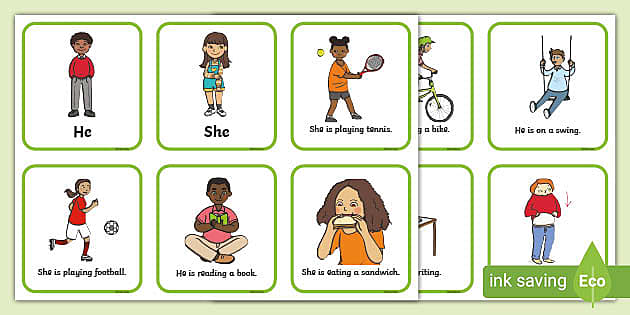AI-Generated Article
This content has been automatically generated using artificial intelligence technology. While we strive for accuracy, please verify important information independently.
There are moments in life when a person just feels a deep, quiet sense of not quite fitting in, a realization that the path they are on, or the expectations placed upon them, simply do not align with their inner makeup. This feeling often bubbles up when faced with tasks that seem straightforward to others but feel like climbing a slick mountain without proper gear for you. It is that particular moment when the way things are done, the accepted norms, or the precise details of a situation just do not click with how your mind works, leading to a profound sense of being out of sync with what is asked.
It can be a bit of a surprise, this feeling, especially if you have always considered yourself adaptable. You might find yourself scratching your head over things that others take for granted, like the exact way to phrase a thought or the subtle differences between words that seem almost the same. This can happen in many areas, but it is particularly noticeable in how we use language, where a tiny shift in wording can completely change the vibe or even the true meaning of what you are trying to say, which, in a way, can make someone feel like they are speaking a completely different tongue.
The truth is, some folks are naturally wired for a certain kind of exactness, a precision in their communication that others might find a little hard to grasp. When you are someone who prefers a more direct, perhaps less formal, way of speaking, and you find yourself in a spot where every single word choice carries a heavy weight, that is when the thought, "he realized he not built for this," can truly take hold. It is not about a lack of smarts; it is about a mismatch between your natural style and the specific demands of a situation.
Table of Contents
- Alex's Story - A Look at Someone Who Felt It
- What Makes Someone Feel "He Not Built For This" in Communication?
- Is it Just About Knowing the Rules, or Something More When He Realized He Not Built For This?
- When Precision Feels Like a Foreign Language
- How Do We Deal With These Tricky Bits When He Realized He Not Built For This?
- The Deeper Meaning Behind the Words
- Does Natural Expression Clash With Expected Form When He Realized He Not Built For This?
- Finding Your Place Even When "He Not Built For This" Seems True
- What Happens When Your Own Way of Talking Doesn't Quite Fit?
Alex's Story - A Look at Someone Who Felt It
Let us consider Alex, for instance. Alex was someone who always valued getting straight to the point. He believed in clear, simple talk, the kind that leaves no room for guessing. He was, to be honest, a person who thought if you had something to say, you should just say it without a lot of extra fuss. This approach worked well for him in many parts of his life, especially when he was dealing with practical matters or just hanging out with his mates. He was known for his honesty and his no-nonsense way of looking at things, which, you know, people usually appreciated.
However, as Alex moved into roles that required a different kind of communication, where every word choice could carry a significant weight, he started to feel a distinct discomfort. It was not that he was not smart enough; quite the opposite. It was more about a fundamental difference in how he naturally processed and expressed ideas versus the very specific, often formal, ways he was expected to. This mismatch began to cause a bit of a nagging feeling, a quiet whisper that maybe, just maybe, this particular way of doing things was not for him, which is to say, he realized he not built for this.
Alex's Bio Data
| Attribute | Detail |
|---|---|
| Preferred Communication Style | Direct, Plain Spoken |
| Approach to Problems | Practical, Solution-Oriented |
| Initial Reaction to Formal Rules | Confusion, Slight Discomfort |
| Primary Strength | Authenticity, Honesty |
What Makes Someone Feel "He Not Built For This" in Communication?
So, what exactly brings on this feeling? Sometimes, it is the tiny, almost invisible rules of language that trip people up. Take, for example, a question that has puzzled many for a good while: which is the correct way to say it, "didn't used to" or "didn't use to"? It seems like a small thing, a mere handful of letters, yet it is the kind of detail that can make you stop and wonder if you are truly speaking the language as it should be spoken. When you are trying to put words together and these small points keep popping up, it can make you feel a little lost, like you are trying to solve a riddle without all the pieces.
Consider the situation where you might say, "We lived on the coast for years but we didn't use to swim in the ocean much." The small word "use" there, without the "d," just feels right to some people, while others might naturally add the "d." This kind of subtle difference, where one way is generally accepted as proper and the other is not, can be a real source of mild irritation for someone who simply wants to get their point across without getting caught up in what feels like a language trap. It is almost as if the language itself has secret handshakes that you are not quite privy to, which, you know, can be a bit frustrating.
Is it Just About Knowing the Rules, or Something More When He Realized He Not Built For This?
It is not just about knowing the formal rules, though. There is a deeper layer to it. When you imply that someone went somewhere for "the purpose for which that place is designed," you are using language in a very specific, almost technical way. On the other hand, if you simply say, "Jimmy's parents went to the school," the meaning is clear, direct, and without much fuss. The difference here is not just about correctness; it is about the *feel* of the words, the way they land, and how they shape the impression you make. For someone who values straightforwardness, the former might feel like a linguistic obstacle course.
Sometimes, this feeling of not being suited for a certain way of speaking comes from the worry of making a serious blunder. The idea that something you have done, or some unexpected turn of events, has left you looking embarrassed is a powerful one. It is not always about a big, obvious error, but often about those small, almost hidden mistakes in word choice that can make you feel a little silly or out of place. This kind of self-consciousness, which, you know, can be quite unsettling, really contributes to the thought that he realized he not built for this, especially when the stakes are high.
When Precision Feels Like a Foreign Language
The business world, for instance, often uses phrases that can feel a bit like a different language. The phrase "due diligence" is one such example. You might encounter it often in emails and reports, but the way it is used there cannot always be considered the standard for how language should be used. It is like everyone understands what it means in context, but if you were to break it down formally, it might not always stand up to strict scrutiny. This creates a kind of unspoken rule, a way of speaking that is understood by those within the group but might feel a bit off to an outsider, or someone who prefers a more universal way of talking.
This struggle with specific phrasing extends to other areas too. Think about the words "smoothe" and "smoothes." Someone might not even mention "smoothe" at all, and in their examples, they might use older forms like "ſmooths" or "ſmootheth," which could be updated to "smoothes," but just as likely not. This kind of historical baggage or common variations in word forms can make it really hard to know what the "right" way is. It is like trying to follow a path where the signs keep changing, which, honestly, can make anyone feel a little unsure of their footing.
How Do We Deal With These Tricky Bits When He Realized He Not Built For This?
Then there are those little connecting words that seem to cause so much trouble: "in which," "of which," "at which," "to which," and so on. Many people get confused about which one to use when putting sentences together. It is a common point of difficulty, like trying to pick the right key from a big bunch of similar-looking ones. This kind of detail, where a tiny word choice completely changes the flow or the correctness of a sentence, can be a constant source of mild anxiety for someone who just wants to communicate clearly without getting tangled in these fine points. This particular struggle, in a way, can really make someone feel like they are just not cut out for this kind of precise word work.
The way words are arranged in a sentence also plays a big part. Take the word "in fact." It can be moved all over the place. For instance, you could say, "Mike said that he did in fact support the new policy," or "Mike said that he, in fact, did support the new policy." Both mean the same thing, more or less, but they *feel* different. One might sound a little more formal, the other a bit more conversational. For someone who struggles with these subtle shifts, it can feel like trying to hit a moving target, which, you know, is pretty tough. This sort of thing can really make you wonder if your natural way of speaking is just not suited for these kinds of specific demands.
The Deeper Meaning Behind the Words
Sometimes, the feeling comes from a basic misunderstanding of words that seem simple. Someone might simply not grasp the true meanings of words like "good" and "well." A dictionary might give a clear explanation, but the practical application, the nuance in how they are used in everyday speech, can be surprisingly tricky. For example, "Jimmy's parents went to the school" is straightforward, but the difference between saying someone is "good" at something versus doing something "well" can be a constant source of small errors. This kind of basic confusion, which, arguably, is more common than people think, can make a person feel like they are missing a fundamental piece of the language puzzle.
When people express thanks to others, they are usually presumed to be doing it sincerely. This seems like a simple idea, but even here, the unspoken rules of communication can create subtle challenges. It is about more than just the words; it is about the underlying assumption of genuine feeling. If someone struggles with expressing themselves in a way that conveys that presumed sincerity, even simple acts of communication can feel like a performance rather than a natural expression. This can lead to a sense of disconnect, a feeling that your true intentions are not quite coming across as they should, which, honestly, can be a bit disheartening.
Does Natural Expression Clash With Expected Form When He Realized He Not Built For This?
Consider a situation where someone, like a pilot, might have said "on my own behalf." If they had just paused for a moment, they might have noticed that the whole phrase felt a bit silly, and it would have been better left out entirely. This is a classic example of how some phrases, while technically correct, just do not sound natural or feel right in a given context. For someone who values natural, unforced expression, being expected to use such phrases can feel like wearing clothes that are a size too small, making every movement feel awkward. This kind of discomfort, you know, can really cement the idea that he realized he not built for this particular way of speaking.
The idea of "having qualities that are desired" is also a big part of this. You might possess many wonderful attributes, like being honest or a quick thinker, but if the specific "desired qualities" for a role involve a very particular kind of formal or nuanced communication, you might find yourself struggling. It is not about a lack of good traits, but rather a mismatch between your natural gifts and the very specific demands of the situation. This can lead to a quiet, internal struggle, a sense that your best qualities are not quite the ones that are valued in this specific setting, which, frankly, can be quite a bummer.
Finding Your Place Even When "He Not Built For This" Seems True
Even when the feeling of "he realized he not built for this" takes root, it does not mean a person is incapable or without value. It simply means that their natural way of operating might not perfectly align with every single situation or expectation. The struggle with specific word choices, like the difference between "good" and "well," or the confusion over prepositions like "in which," are not signs of a lack of intelligence. Rather, they highlight the diverse ways people process and interact with language. Some people are just wired for a different kind of linguistic dance, and that is perfectly okay. It is, in some respects, about finding where your unique strengths truly shine.
The key is to recognize that this feeling is not a judgment on one's overall ability. It is a specific observation about a particular fit. Just as some people are naturally good at abstract thinking and others at hands-on tasks, so too are there variations in how people handle the subtle, sometimes confusing, rules of communication. This realization, that your way of doing things might not be the "standard" way for a specific context, can actually be a moment of clarity. It helps you understand your own strengths and where you might need to adapt, or perhaps, where you are simply better suited to other kinds of work, which, you know, is a pretty important bit of self-knowledge.
What Happens When Your Own Way of Talking Doesn't Quite Fit?
When your own way of talking does not quite fit, it can feel like you are constantly translating your thoughts. You might have a perfectly clear idea in your head, but putting it into the expected formal or precise language feels like trying to pour a square peg into a round hole. This can lead to a lot of mental effort, a kind of linguistic gymnastics that leaves you feeling tired and a little frustrated. It is not about being unable to communicate, but about the sheer effort required to communicate in a way that feels unnatural to you, which, you know, can be a real drain on your energy.
This constant need to adjust your natural expression can also make you question your own abilities, even if you are perfectly capable in other areas. The struggle with things like sentence structure or the subtle meanings of words can make you feel less confident in your overall communication skills, even when your core message is strong. It is a bit like being a talented painter who is suddenly asked to sculpt; you have artistic ability, but the medium just does not quite click with your natural talents. This feeling, that your inherent way of expressing yourself is just not quite the right tool for the job, can really reinforce the idea that he realized he not built for this specific kind of work.
🖼️ Related Images



Quick AI Summary
This AI-generated article covers When He Realized He Not Built For This - A Personal Look with comprehensive insights and detailed analysis. The content is designed to provide valuable information while maintaining readability and engagement.
Laverne Mills
✍️ Article Author
👨💻 Laverne Mills is a passionate writer and content creator who specializes in creating engaging and informative articles. With expertise in various topics, they bring valuable insights and practical knowledge to every piece of content.
📬 Follow Laverne Mills
Stay updated with the latest articles and insights